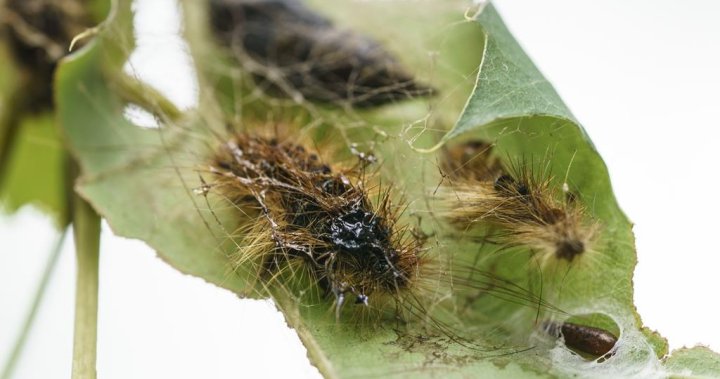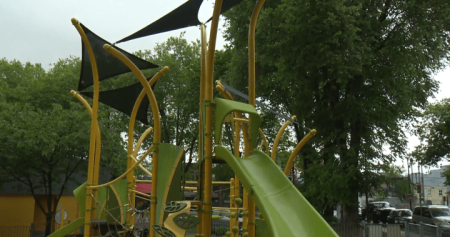Some environmentally minded individuals in West Kelowna, B.C., have raised concerns about plans for aerial spraying of a bacterial pesticide called Foray 48B in the area. However, their attempt to express their concerns to local politicians was shut down at a council meeting. Mayor Gord Milsom and other council members pointed out that the decision to spray is a provincial matter and not within their jurisdiction. Despite Councilor Stephen Johnston’s willingness to hear more about the issue, the conversation was ultimately scuttled, with the group still intent on sharing their concerns.
Foray 48B is a biological insecticide that is commonly used in B.C. and is registered with the Organic Materials Review Institute. It contains Bacillus thuringiensis var. kurstaki, known as Btk, as its active ingredient. The provincial government maintains that the spray only affects moth and butterfly larvae and is safe for humans and other animals. However, the Citizens Safety Association highlighted potential health risks associated with the aerial application in a letter to the West Kelowna city council, citing concerns related to respiratory, vision, cardiac, neurological, gastrointestinal, and skin issues.
The association’s concerns do not align with the provincial standpoint, as stated on the Ministry of Environment website, which asserts that Btk is only harmful to moth and butterfly caterpillars. The use of the spray is intended to control the sponge moth, formerly known as the gypsy moth, which can cause significant damage to trees by defoliating them. The repeated defoliation of trees by the sponge moth can lead to tree death or vulnerability to secondary infestations. This information provided by the province contradicts the health concerns raised by the Citizens Safety Association, emphasizing the importance of understanding and evaluating different perspectives on the issue.
Despite their concerns being dismissed at the council meeting, the Citizens Safety Association is determined to continue sharing information about the potential health risks associated with the aerial spraying of Foray 48B in West Kelowna. While the decision to proceed with the spray lies with the provincial authorities, the group believes that local residents should be informed and have the opportunity to voice their concerns. The debate surrounding the use of biological pesticides like Foray 48B highlights the complex balance between environmental conservation and pest management, requiring thorough examination and consideration of all relevant factors.
The disagreement between the Citizens Safety Association and the provincial government over the potential health risks of Foray 48B underscores the importance of communication and transparency in decision-making processes related to environmental issues. While the provincial government asserts the safety of the bacterial pesticide for humans and animals, the association’s concerns about respiratory, vision, and other health issues warrant further investigation. Balancing the need for pest control with minimizing potential health and environmental risks requires careful evaluation and consideration of differing viewpoints, underscoring the need for open dialogue and debate on such matters. Ultimately, finding a resolution that addresses both pest management needs and environmental and health concerns will require collaboration and cooperation between all stakeholders involved.















